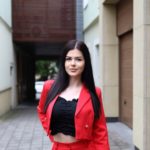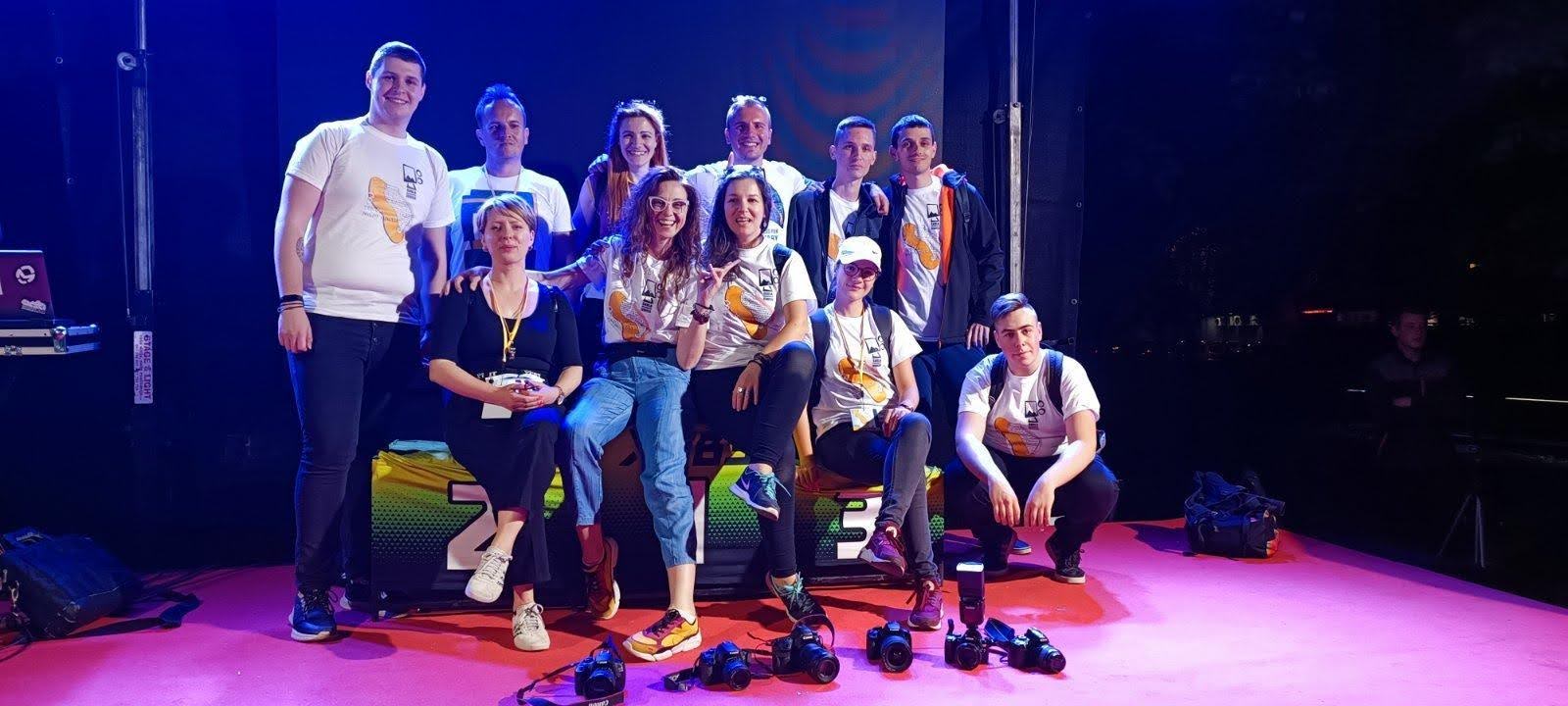
Dijana Muminović, a Master of Visual Communications, is an award-winning Bosnian-American photographer who, through documentary photography, tells stories about immigrants, human rights, and the consequences of the war in Bosnia and Herzegovina.
Despite holding an American passport, she shares her knowledge and experience in her native homeland – Bosnia and Herzegovina – where she has chosen to return, sending messages of hope, collective action, and creation through her work.
As a result of the war in Bosnia and Herzegovina, Dijana immigrated to the United States, where she developed a love for photography. She realized that photography was her calling as a student, when she given an assignment to capture a moment from everyday life.
“I lived in the city of Bowling Green, Kentucky, at the time, and to me, it felt like a lifeless place, unlike the place my soul craved. I wanted streets filled with people, events, people strolling, children running around, working in yards, and so on. Life in this place revolved around getting in the car, going to work, then getting back in the car and going home. There was no one on the streets, sort of like Zenica during COVID-19 times in 2019-2020,” explained Dijana.
Finding the city “lifeless,” she gave up, disappointed, and headed home to complete her homework assignment. At the very moment of that decision, a woman carrying a child on her back, wrapped in a scarf, appeared in front of her. Dijana captured a photograph of the woman, which was later recognized by National Geographic. However, as she didn’t know anything about the woman, she was criticised during a photography class and told that she needed to obtain the information. She printed the photograph and went to the immigration center to request details about the woman, but they refused to share the information.
The Woman from Burma
A couple of years later, during the final photography class, they had to create a photographic story about someone’s life. Dijana went to one of the five nearby immigrant settlements in the hope of finding the woman from her previous photograph. She was directed to a particular entrance, and she went upstairs. When she opened the door, she saw her photograph on the wall. She learned that the woman was from Burma.
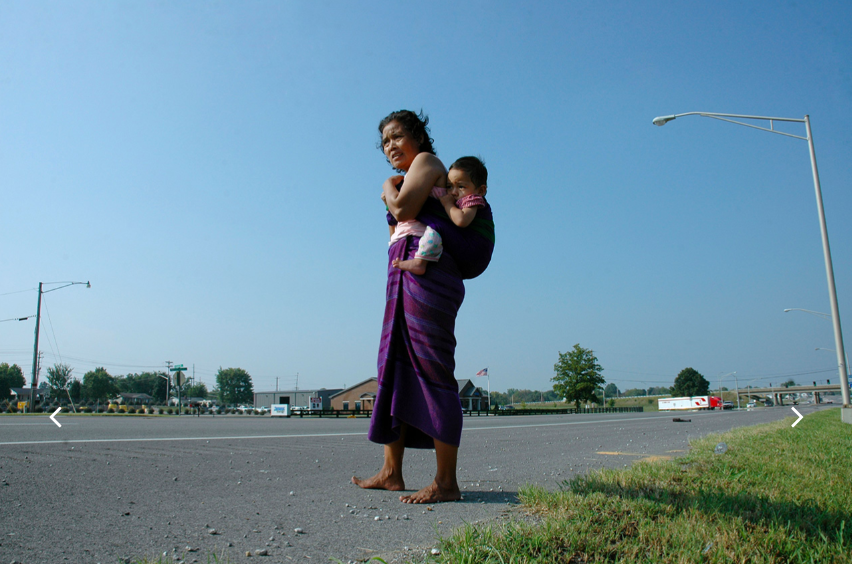
Dijana’s describes her journey in America as not at all easy. Early on in her studies, she had to develop photographs in a darkroom, which meant buying paper, camera film, and even her own camera.
“We arrived in America from Bosnia in 1997. Like all refugees and migrants, we didn’t have much. It was a period of adaptation, both to the new environment and economically. And all of the equipment was expensive,” she recalled.
In 2000, at the age of 15, Dijana started her first job, working at a Burger King. That very same year, her mother passed away. Although Dijana was supposed to be thinking more seriously about the future, education, and better job opportunities, she was driven by her emotions and sought out what aligned with her being.
While grappling with the life-altering experience of losing her mother and surviving in a new environment, she began photographing the lives of immigrants. “We understood each other without knowing the same language, and I realized that I possess a gift – that people trust me, which helps them to open the doors of their lives,” she stated.
In order to purchase equipment, she recalled that she had to work two more jobs. Through hard work, she completed her undergraduate studies and later pursued master’s degree in Ohio. She has been awarded numerous times for her work.
She added that her work was also influenced by an initial exhibition about women from Bosnia and Herzegovina, who lost sons, husbands, and fathers in the war and were still awaiting news about the discovery of their bones.
“My goal is simple: to always inspire people, contribute to positive thinking, and be a voice for others,” said Dijana.
She also shared the story of refugees from Ukraine, photographing the first bus of women and children that arrived in Međugorje from the country. For this photograph, she won the WideOpen Excellence in Photography Award in Ohio.
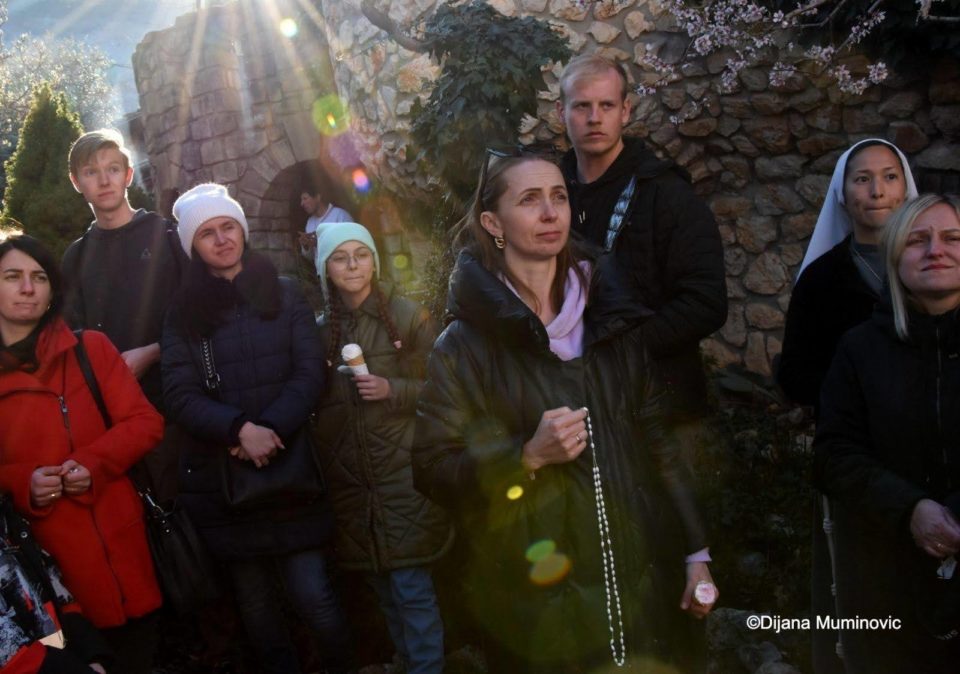
Phototherapy, Work, and Education
Dijana is the founder of the first photography school in Bosnia and Herzegovina, open to community members of all ages. The idea for the school began to take shape while she was still in America. Upon completing her master’s degree and phototherapy, she was inspired to offer photography classes as a form of therapy. She decided to return to Bosnia and Herzegovina, a choice that she says seemed crazy to many and required extensive explanations. Finding more obstacles along her path than support, she realized that she would first need to develop a foundational program to demonstrate the power of photography to the community.
Dijana says that despite the relaxed atmosphere of her classes, she believes that under the surface, they provide phototherapy as well as productive and educational components related to photography.
“I’m proud of every piece of work and how participants demonstrate their abilities and creativity in such a short period,” stated the award-winning photographer.
Dijana’s most treasured moment was when the oldest of the participants, a 79-year-old woman who was hospitalized for COVID-19 at the time, called her and said, “Di, I’m taking this gadget off, going to the window, and taking pictures of the sunset. Oh, you should see how beautiful it is.”
“She won at life,” Dijana added.
For her, the Photography School is not just a place to learn about photography, but is deeply rooted in love for life, people, and beauty.
Dijana is proud that, through her dedication, she has been able to convey messages of hope, collective action, and creation in her homeland. She remains deeply committed to her purpose, despite all obstacles and criticism.
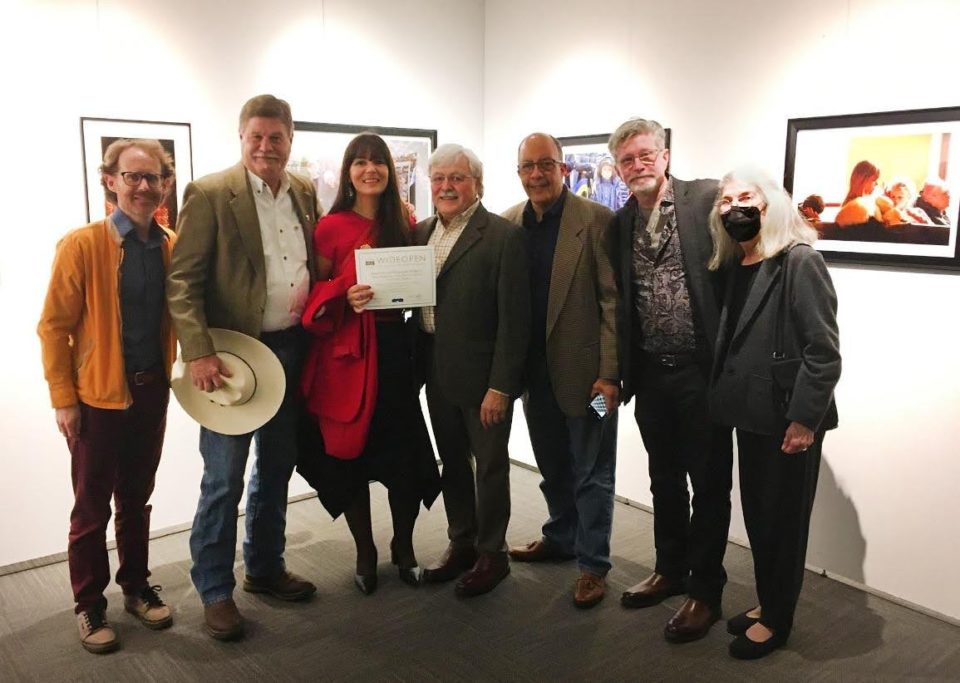
Although, as an American citizen, Dijana had the option to work anywhere, she says that returning to her homeland was a choice—she was not fleeing from America or merely responding to other’s judgements.
“The Photography School, whether it continues or not, is my greatest pride. That’s because I managed to convince others, instill hope, and demonstrate that it’s possible to thrive in one’s own country. I have shown that what seemed impossible is indeed possible. I put a lot of stock in faith, both faith in my abilities and in our entire society, even though it didn’t understand my return,” Dijana emphasized.
Six years after establishing the Photography School Association, Dijana stands an example of someone who returned and became actively involved in her community. Her message to the young people who have left Bosnia and Herzegovina is that they will surely develop a sense of homeland someday.
“Your homeland is nature; your homeland is all the other people who are not fortunate enough to have opportunities like you. Your homeland is not the bad leaders, because they persistently lead it to ruin. Your struggle is your knowledge, your ability, your wisdom in all of this, and everything you feel you can contribute, know that your feeling is always right and follow it. No one else will do a better job of something you feel called to do, and we all have at least one task in our lives,” conveyed the Bosnian photographer with American citizenship.



